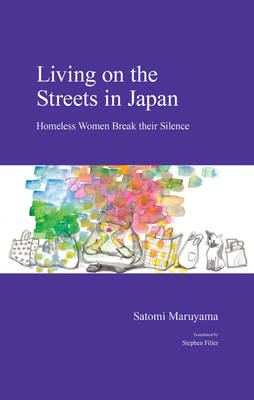
- Afhalen na 1 uur in een winkel met voorraad
- Gratis thuislevering in België vanaf € 30
- Ruim aanbod met 7 miljoen producten
- Afhalen na 1 uur in een winkel met voorraad
- Gratis thuislevering in België vanaf € 30
- Ruim aanbod met 7 miljoen producten
Zoeken
€ 90,45
+ 180 punten
Uitvoering
Omschrijving
Homelessness has been recognized as a serious problem in Japan since the 1990s, but the dominant model of a "homeless person" has been that of an unemployed male laborer - a model that has largely excluded women, who experience homelessness in different forms. This study gives the homeless women of Japan a voice at last. Based on extensive fieldwork, the author paints a vivid picture of the unique experiences of homeless women living in a diverse range of environments. By introducing a gender perspective to the analytic framework and challenging the conception of the homeless individual as a rational, autonomous subject, the author invites a critical reconsideration of homeless studies and of public policy.
Specificaties
Betrokkenen
- Auteur(s):
- Vertaler(s):
- Uitgeverij:
Inhoud
- Aantal bladzijden:
- 277
- Taal:
- Engels
- Reeks:
Eigenschappen
- Productcode (EAN):
- 9781925608854
- Verschijningsdatum:
- 1/01/2019
- Uitvoering:
- Hardcover
- Formaat:
- Genaaid
- Afmetingen:
- 142 mm x 218 mm
- Gewicht:
- 453 g

Alleen bij Standaard Boekhandel
+ 180 punten op je klantenkaart van Standaard Boekhandel
Beoordelingen
We publiceren alleen reviews die voldoen aan de voorwaarden voor reviews. Bekijk onze voorwaarden voor reviews.











